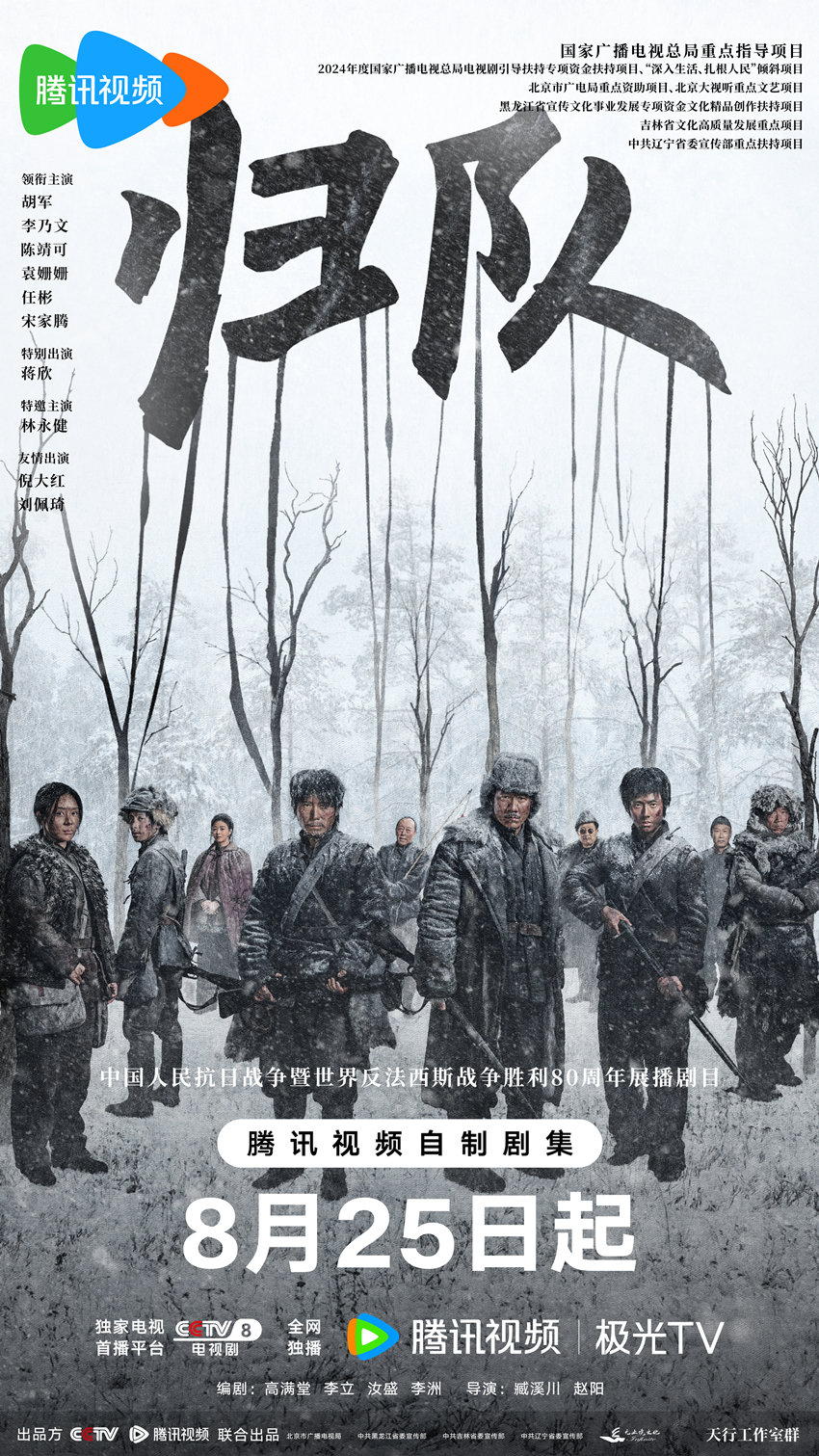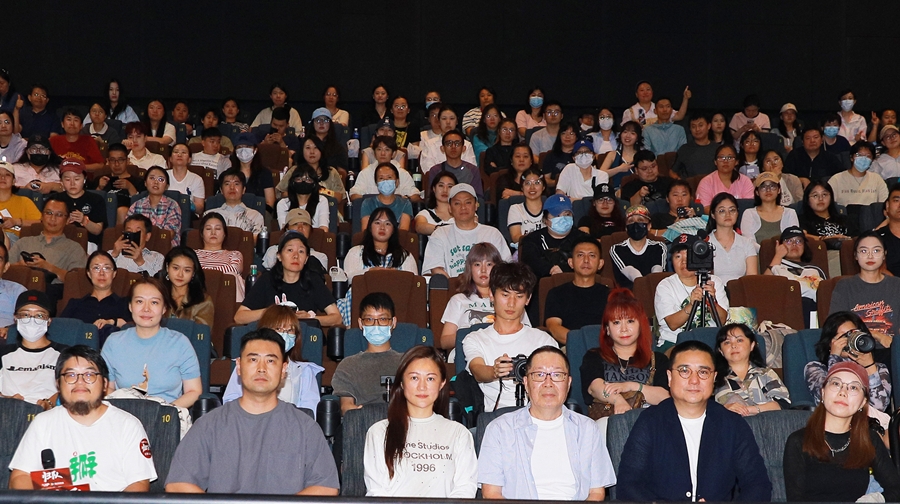"The Long Way Back," a new TV drama following a Northeast Anti-Japanese United Army during China's 14-year resistance, debuted on Aug. 25 on CCTV-8 and Tencent Video. Its creators emphasized how they humanized heroes through ordinary perspectives.

Creators (front row) pose for a photo at a special screening event of "The Long Way Back," in Beijing, Aug. 23, 2025. [Photo courtesy of Tencent Video]
"We lowered our perspective from a grand epic scale to tell the story of a group of ordinary soldiers — a small squad whose journey of breaking through, being separated, and reuniting connects a larger narrative through this intimate lens," shared renowned screenwriter Gao Mantang at a screening event in Beijing on Aug. 23.
"The Long Way Back" follows soldiers who become isolated from their commanding forces and the leadership of the Communist Party of China after a fierce battle. This isolation forces them to endure a relentless Japanese pursuit. Bound by their oath to fight to the death, they survive extreme hardships and life-or-death ordeals as they struggle to regroup and return to the battlefield. Their sacrifice contributes to China's defeat of the Japanese forces and the victory in the global anti-fascist war.
The screenwriter has consistently maintained a realist approach, excelling at portraying the inner lives and spiritual depth of ordinary people. "We often see resistance war-themed works where heroes are depicted as omnipotent. This kind of simplistic binary opposition should be avoided. We must pursue the de-deification and focus on humanization, making characters more concrete and authentic," he emphasized.
Gao recalled that during the creation of the series, the team conducted research at former Northeast Anti-Japanese United Army sites across northeast China, to ensure historical accuracy. Gao personally interviewed more than 30 surviving veterans and descendants, combining firsthand accounts with historical materials over nearly three years of script development. On one occasion, he encountered a blood-marked inscription scratched into a wall with fingernails by an executed soldier of the army. It read: "China will not perish; we will fight the Japanese to the end!"
"It brought tears to my eyes when I saw it," he said. "That is why, when we engage in creative work — especially with this kind of subject matter — I set a rule: consult fewer documents, and be sure to use as few written sources as possible. If firsthand interviews can be conducted, we must do them ourselves, because documents and personal interviews are completely different."
He added: "We wrote about those who carried torches — a spark that will never be extinguished, and the ode to heroes will never cease. They sought survival in despair and searched for hope in desperation. We must closely capture the fluctuations of their convictions throughout this journey: they experienced doubt, hesitation, desertion, and even betrayal. It is by holding firmly to these authentic emotions, and unfolding the story through their choices, that we truly portray their struggles."
Produced by Tencent Video under the guidance of China's National Radio and Television Administration, the series commemorates the 80th anniversary of the victory in the Chinese People's War of Resistance Against Japanese Aggression and the World Anti-Fascist War. Directed by Zang Xichuan and Zhao Yang, with a screenplay by Gao, Li Li, Ru Sheng, and Li Zhou, the cast features Hu Jun, Li Naiwen, Chen Jingke, Yuan Shanshan, Ren Bin, and Song Jiateng.
Director Zang Xichuan stated that the team chose to film on real locations in Northeast China where soldiers had once fought. Upon seeing the authentic landscapes, they were deeply moved by the region's beauty and immediately understood why their predecessors fought so desperately to protect it.
"The effort required for 'The Long Way Back' lies in restoring that historical period as authentically as possible. The best viewing experience for a period drama is immersion — we genuinely hope audiences can become fully immersed and feel transported into that era," he said.

A poster for "The Long Way Back." [Image courtesy of Tencent Video]
The leading actor Hu Jun revealed that he lost 18.5 kilograms over several months in preparation for his role at another promotional event on Aug. 25. He noted that only by being immersed in that real environment can one truly grasp how extraordinarily difficult it was for Northeast Anti-Japanese United Army soldiers.
"It's about how they managed to survive at all. From the very first day, they endured the longest resistance under the worst conditions in all of China. They suffered the greatest sacrifices and fought through the most brutal circumstances. Honestly, just speaking about this gives me chills."
He added, "I truly hope everyone will watch this series thoughtfully and engage with its history. Our performance in this drama is not primarily meant to evoke emotion — rather, our sole purpose is to ensure audiences remember that such a group of people once fought for the lives we have today."


 Share:
Share: 




 京公网安备 11010802027341号
京公网安备 11010802027341号